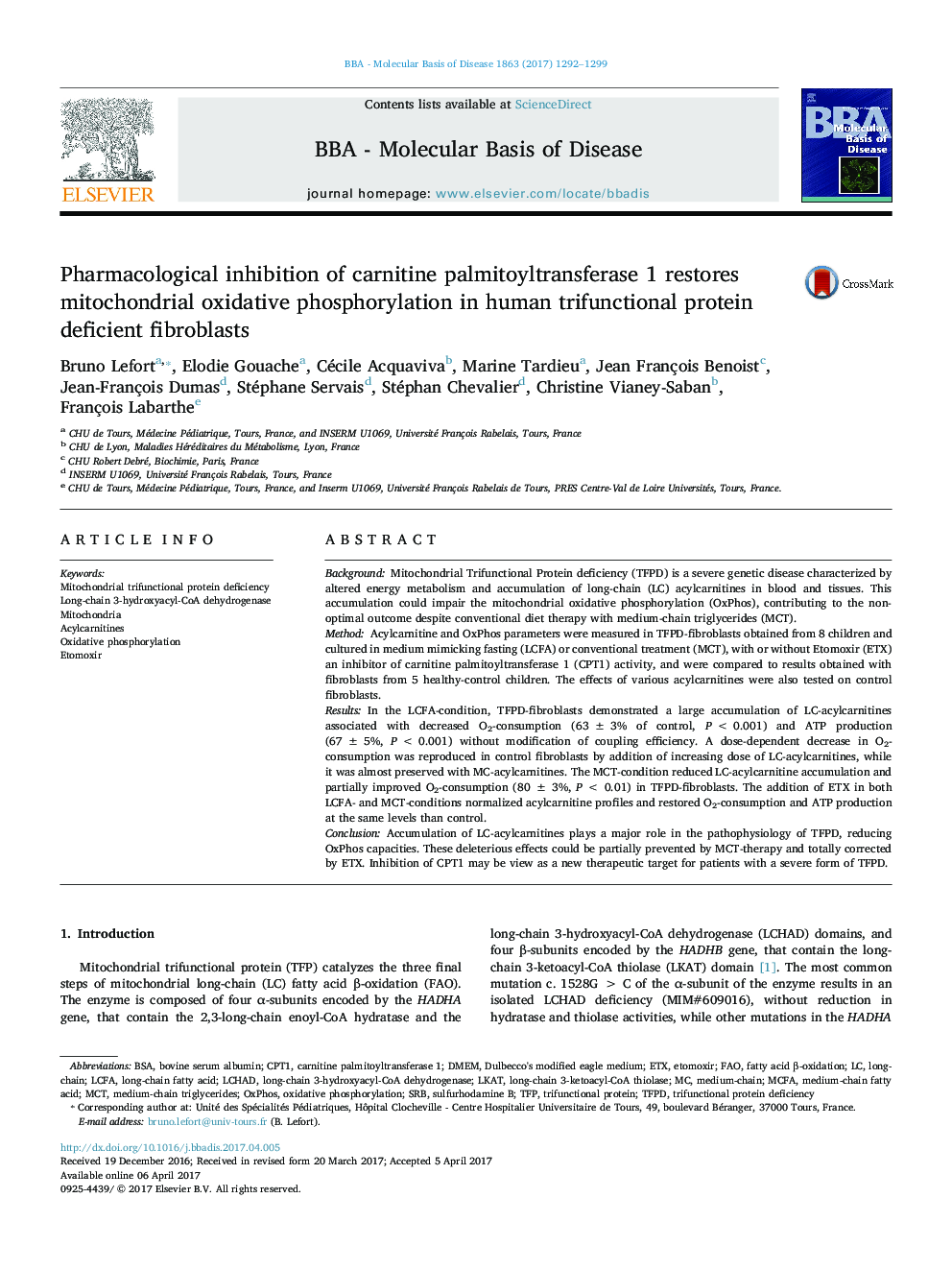| Article ID | Journal | Published Year | Pages | File Type |
|---|---|---|---|---|
| 5501035 | Biochimica et Biophysica Acta (BBA) - Molecular Basis of Disease | 2017 | 8 Pages |
Abstract
Accumulation of LC-acylcarnitines plays a major role in the pathophysiology of TFPD, reducing OxPhos capacities. These deleterious effects could be partially prevented by MCT-therapy and totally corrected by ETX. Inhibition of CPT1 may be view as a new therapeutic target for patients with a severe form of TFPD.
Keywords
MCTETXetomoxirLCHADTFPCPT1LCFALong-chain 3-ketoacyl-CoA thiolaseOXPHOSMCFASRBDMEMLong-chain 3-hydroxyacyl-coA dehydrogenaseBSADulbecco's modified Eagle MediumFatty acid β-oxidationAcylcarnitinesbovine serum albuminLong-chain fatty acidmedium-chain fatty acidMedium-chain triglycerideslong-chainMedium-chainFAOOxidative phosphorylationMitochondriaTrifunctional proteinCarnitine palmitoyltransferase 1Trifunctional protein deficiency
Related Topics
Life Sciences
Biochemistry, Genetics and Molecular Biology
Ageing
Authors
Bruno Lefort, Elodie Gouache, Cécile Acquaviva, Marine Tardieu, Jean François Benoist, Jean-François Dumas, Stéphane Servais, Stéphan Chevalier, Christine Vianey-Saban, François Labarthe,
